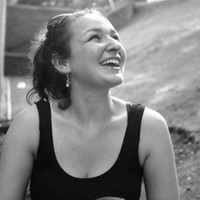 In 2015 Melissa Daly an education officer at the Birmingham Repertory Theatre and Richard Hayhow, Director of the Open Theatre Company, travelled to Krasnayorks in Siberia to share ideas on theatre practice at an international conference. They discovered a land where, in the absence of provided services, parents take the lead. Melissa takes up the story…
In 2015 Melissa Daly an education officer at the Birmingham Repertory Theatre and Richard Hayhow, Director of the Open Theatre Company, travelled to Krasnayorks in Siberia to share ideas on theatre practice at an international conference. They discovered a land where, in the absence of provided services, parents take the lead. Melissa takes up the story…
I have been working closely with Richard for some time now and was delighted to go and work with him at an international conference in Krasnayorsk in Siberia. I work as an Education Officer for The Birmingham Repertory Theatre with a focus on working with young people with learning disabilities This includes delivering drama sessions in Mayfield Special School with young people who have a range of learning disabilties. After 6 months in the school, I started to feel slightly out of my depth and was concerned that many of the drama activities were not accessible for the young people I was working with. This sparked my journey to discover a new way of working which could engage these young people.
For almost two decades, Richard Hayhow has been developing theatre with young people and children with learning disabilities, within the education sector and beyond. The practice, which we have labelled ‘mimetics’, focuses upon non-verbal, physical action and interaction as the heart of all human communication and the leveller across differences. Much of the work undertaken within current theatre practice is heavily verbal and often conceptual at its heart. By its very nature it tends to exclude young people with learning disabilities who rely on non-verbal means of communication.
This experimental psycho-physical actor-training approach has been adapted to enable a genuinely collaborative approach to communicating and making theatre with young people with learning disabilities. Having been trained by Richard in this practice, this trip to Siberia was a once in a lifetime opportunity to further develop my skills and to explore the education system in another country.
Central role of parents
We had the pleasure of working with a number of young people throughout our stay in Krasnoyarsk as well as presenting at the conference. What struck me most about the education system in Siberia was the lack of special educational provision. As a result of this, parents had been inspired to play a central role in creating more suitable opportunities for their young people.
We visited an organisation called ‘Open Hearts’ to deliver a drama workshop and it was wonderful to see a group of parents working so closely together to engage young people with learning disabilities. This project is fantastic but it was quite disconcerting that only a small number of schools and young people would benefit from it. I was very surprised that this project seemed to be driven by the parents and not necessarily by the education authorities. This was also apparent after a visit to Raduga Rehabilitation Centre, Light of Hope and MumiDom Centre. A highlight of the week would have to be our trip to Social Homestead “Dobraya” where we were welcomed with fantastic hospitality and lots of snow! The facilities were impressive (they even had an outdoor theatre) and I could only imagine the wonderful vocational activities young people could take part in here. Once again, it appeared that this had been set up and run by a family of a young boy with autism.
Parent engagement
After just a few days in Krasnoyarsk, I started to consider how different this was from our set up in the UK. We have a much more developed special education system but do we have the same level of parent engagement? I wondered how we could enhance our provision by engaging with parents more and encouraging them to take a more active role in the work we do with their young people.
The conference itself was very informative and it was encouraging to hear that the Russian Education Minister is planning a special education system to enhance the learning and development of young people with learning disabilities in Russia. A highlight was Richard successfully encouraging 500 delegates to take part in a mirroring exercise as we presented our work – a wonderful moment!
On our final day we delivered a teacher-training session for around 40 adults and a small group of young people. Their enthusiasm and openness to the work was overwhelming and the atmosphere electric.
It would have been great to have had more time for conversations with the parents who were creating these opportunities and making a real difference for these young people.
I left Siberia inspired at how we had managed to share our theatre practice with so many people despite the fact we could not hold a conversation with most of them. If we are to continue to create opportunities for young people with learning disabilities we must look outside the work we are doing individually and share our practice as widely as possible. Krasnoyarsk is a beautiful place and we met some wonderful people I hope to meet again one day.
For more information on the Open Hearts Project in Siberia:
http://healthprom.org/where-we-work/russian-federation/
For Open Theatre Company see http://www.opentheatre.co.uk/
Birmingham Rep is at http://www.birmingham-rep.co.uk/
